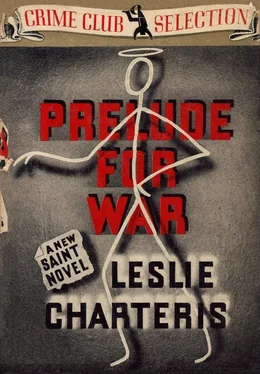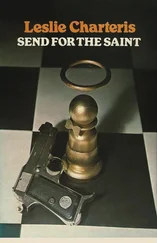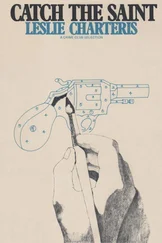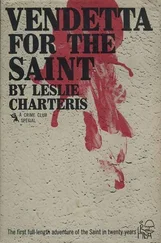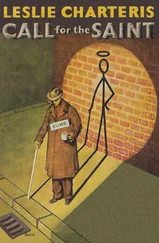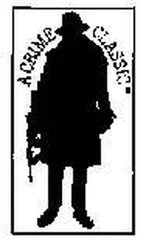He scooted on after Lady Valerie. She was out of sight when he rounded the next corner after her, but the station was the only place she could have been going into. He even knew what part of the station she would make for.
He stood inside the first entrance he came to and let his eyes probe around the gloom of the interior. It was so long since he had travelled by rail that he had almost forgotten the gruesome efficiency with which London railway terminals prepare the arriving voyager for the discomforts of his coming journey. The station, proudly ignoring the march of civilization, had not changed in a single material detail since he last saw it, any more than it had probably changed since the days when trains were preceded by a herald waving a red flag. There were the same dingy skylights overhead, opaque with accumulated grime; the same naked soot-blackened girders; the same stark soot-blackened walls splashed with lurid posters proclaiming the virtues of Bovril and the bracing breezes of Weston-super-Mare; the same filthily blackened floors patterned with zigzag trails of moisture where some plodding porter had passed by with a rusty watering can on a futile mission of dampening down the underfoot layers of dirt; the same bleak "refreshment" rooms with cold black marble counters and buzzing flies and unimaginative ham sandwiches in glass cases like museum specimens; the same faint but pervading smell of stale soot, stale humanity, and (for no apparent reason) stale horses. Somewhere in that gritty grisly monument to the civic enterprise of twentieth-century London he knew he would find Lady Valerie Woodchester; and presently he saw her, looking amazingly trim and clean among the sweating mobs of holiday-departing trippers, coming away from the direction of the checkroom. And now she carried a bulky manila envelope in one hand.
Simon ducked rapidly into a waiting room that looked like the anteroom of a morgue; but she went straight to the ticket office selling tickets for the Reading and Bristol line. He saw her turn away with a ticket and walk briskly back towards one of the departure platforms.
The Saint beelined for the window she had just left, but before he could reach it a large boiled-pink woman with two bug-eyed children clinging to her skirts was there in front of him. She was one of those women from whom no booking office ever seems to be free, who combine with the afflictions of acute myopia and deafness the habit of keeping their money in the uttermost depths of a series of intercommunicating bags and purses. Simon stood behind her and fumed on the verge of homicidal frenzy while she argued with the booking clerk and peered and fumbled with placid deliberation through the interminable succession of Chinese boxes in the last of which her portable funds were lovingly enshrined. A line of other prospective passengers began to form behind him. Unaware that the world was standing still and waiting for her, the woman began to count her change and reopen her collection of private puzzles to stow it lovingly away, while she went on to cross-examine the clerk about the freshness of the milk in the dining car on the train to Torquay. Meanwhile Lady Valerie had disappeared.
The Saint's patience came to an explosive end. He took hold of the woman by her raw beefy elbows and removed her from the window.
"Pardon me, madam," he said in a voice that the booking clerk was meant to hear. "I'm a police officer, and I'm busy."
He stuck his head down to the pigeonhole from which sixpenny excursion tickets are doled out at English railway stations with more grudging condescension than thousand-pound notes are passed out at the Bank of England.
"That young lady who was here just before your last customer," he said. "Where did she want to go to?"
Fortunately the clerk had a long memory.
"Anford, sir."
"Give me a ticket there — first class."
Simon slid money under the grille and turned away, grabbing up his ticket. He shoved past the gaping queue and collared a porter who was mooning by.
"Which is the next train to Anford, and where does it go from?" he snapped.
"Anford, sir?"
"Yes. Anford."
"Anford," said the porter, digesting the name. "Anford."
"Anford," said the Saint gutturally.
"Anford," said the porter, keeping his end up without any sign of fatigue. "Where would that be, sir?"
"It would be in Wiltshire. You change at Marlborough."
"Ar, Marlborough." The porter scratched his head. "Marlborough. Marlborough. Then it's a Marlborough train you'd be wanting, sir."
Simon overcame a fearful impulse to assault him.
"Yes. I could manage with a Marlborough train."
"There's one just leaving from platform six," said the man laboriously, as though a dark secret were being dragged out of him, "but I dunno as how you'd have time to catch that one—"
The Saint left him to be his own audience. He was off like a bolt out of a crossbow, plunging along towards an ancient smoky board that did its best not to reveal the whereabouts of platform six. And while he was on his way he was trying to place this new and unexpected destination of Lady Valerie's. Was she going there because she was at Paddington and it was the first place that came into her head? Or was she subtle enough to think that it was the last place where she would be looked for? Or had she some positive purpose? Or…
Something seemed to go off like a silent bomb inside the Saint's chest. The concussion threw his heart off its beat, squeezed all the air out of his lungs; his legs felt as if the marrow had been sucked out of the bones. He kept on walking through nothing but sheer muscular automatism.
There was one thing he had forgotten, and he had almost walked straight into it.
A burly man in a dark suit was pacing bovinely past the entrance to the platform, methodically scanning the faces of all the passengers who came within his view. He had the trade marks of Scotland Yard stamped all over him, and Simon could have picked him out of a crowd at five hundred yards if he had not been too preoccupied to look for him. As it was, another dozen steps would have planted him squarely on the man's shinily booted toes.
The alarm had gone out in earnest. A searingly vengeful Chief Inspector Teal had covered every exit from London that it was in his power to cover. No doubt there were the same burly bovine men at every station in the metropolis. The Saint hadn't a snowflake's hope in hell of boarding the train that Lady Valerie had taken. He would be lucky enough to get out of Paddington without irons on his wrists.
VII
How Simon Templar conversed with sundry persons,
and police-constable Reginald congratulated him
Simon kept on walking. How he managed it was one of those unsung victories of mind over matter; but he kept on. His steps remained outwardly unchanged, and to all ordinary appearances he was still only one of the undistinguished members of the crowd who scurried to and fro like well-trained movie extras providing background atmosphere for the picture of any busy terminus. None of them knew how easy it would have been for him to turn and run like a hunted fox.
But that would have singled him out at once. His only hope was to retain the anonymity which had so far given him divine protection. Quietly, evenly, without a trace of excitement, the Saint walked on, turning in a gradual curve that took him imperceptibly further away from the watching detective and finally reversed his direction entirely without ever including an abrupt movement that would have caught anyone's eye. Icy needles danced over his skin, but he completed the manoeuvre without a tremor. He knew that the detective had seen him and was looking at him; as he headed back towards the nearest exit, he could feel the man's eyes boring into the back of his neck…
Читать дальше
